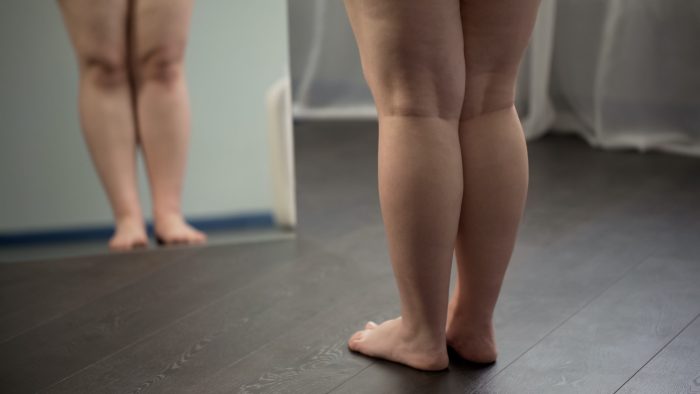Body dissatisfaction is high in women- in fact, one population study (of thousands of women) found that 86.9% of Australian women are unhappy with their bodies. That’s the majority of women, which is shockingly high.
There can be so many reasons why women are unhappy with their bodies. Social and cultural factors are typically involved, such as:
- The media has for many years displayed one type of body as attractive (including skin colour). The lack of diversity and representation has, for decades, shown young women and girls what to aspire to for their appearance.
- Judgement, criticism, bullying, and comments from others about what your body looks like, how it should look, and how you should display it, can make you self-conscious about your body.
- These can lead to internalising the ‘thin-ideal’. Basically, you learn that it’s important to have a thin body, and that this is ideal. And when you internalise this message, unless your body is this one particular (and often unachievable) body type, you’re in for a bad time.
- Experiencing sexism through objectification (i.e., your worth as a female is tied to what your body looks like- and there is nothing more to you) and/or unwanted male attention (ranging from the ‘male gaze’ to sexual harassment) will often cause women to feel shame or unhappiness with their bodies, and this has been linked to poorer mental health.
- Women can develop difficult relationships with their bodies as a result of trauma. When your body has been hurt, it can feel unsafe to be in afterwards.
In ‘The Body Image Workbook’, Cash outlines some unhelpful assumptions that affect people’s feelings about their bodies and body image. These beliefs include:
- Physically attractive people have it all.
- My worth as a person depends on how I look.
- I should always do whatever I can to look my best.
- The first thing that people will notice about me is what’s wrong with my appearance.
- If people knew how I really looked, they would probably like me less.
- By managing my physical appearance, I can control my social and emotional life.
- My appearance is responsible for much of what has happened in my life.
- If I could look just as I wish, my life would be much happier.
- My culture’s messages make it impossible for me to be satisfied with my appearance.
- The only way that I could ever accept my looks would be to change my looks.
Some of these beliefs can become entrenched and assumed to be true- which means they are never questioned. But, they are all problematic or inaccurate in some way.
Recognising that body beliefs are just beliefs and assumptions (not facts or absolute truth) can be hard sometimes. We can get so attached to these internalised beliefs that stepping back and reflecting on them can be challenging work. However, recognising these assumptions for what they are also means that they can be adjusted, changed, or tweaked. For example, Cash highlights a helpful response to ‘The only way that I could ever accept my looks would be to change my looks’ is
‘The only way that I could ever accept my looks would be to change my body image’.
We live in a culture that has contributed to most women being unhappy with their bodies. Yet, living with your body is something you’ll do for the rest of your life. And in trying to make this a happier relationship, some points to reflect on are:
- What we believe about our body and appearance is not necessarily true.
- Have you considered your body beliefs? What are they? How do these affect how you feel about your body? Is this how you want to think about your body for the rest of your life?
- How do you look at other people’s appearances? Is it as harshly as you look at yourself, the same, or gentler?
- How you see yourself is not how other people see you. We are often kinder towards other people than ourselves- which means this is also coming your way from other people. There’s also a beautiful example of this in this clip, which highlights a wonderful message: You are more beautiful than you think you are.
- You are so much more than what your body looks like. You are a whole constellation of behaviours, personality, emotions, soul, spirituality, and thoughts, that are uniquely you. Other people aren’t spending time with you based solely on your appearance; they’re spending time with you because you have something more to offer. (Just like you aren’t just spending time with people based on their appearance). Your worth is far more than what you look like.
Also, here are some steps towards a better body image. It’s also valuable to learn more about feelings of fatness.

